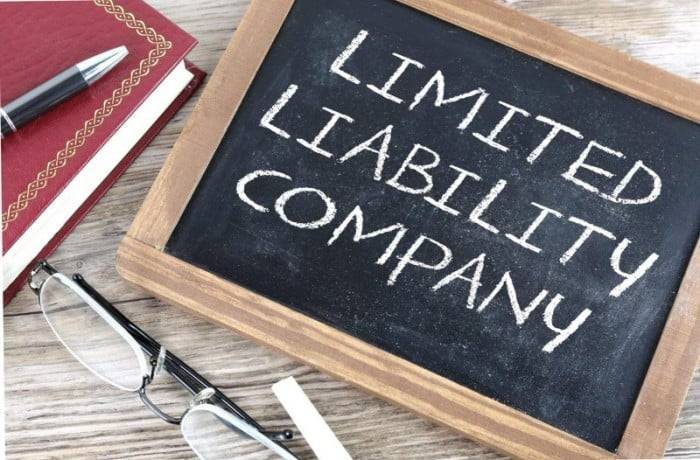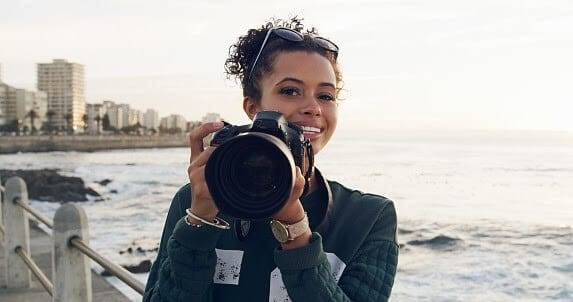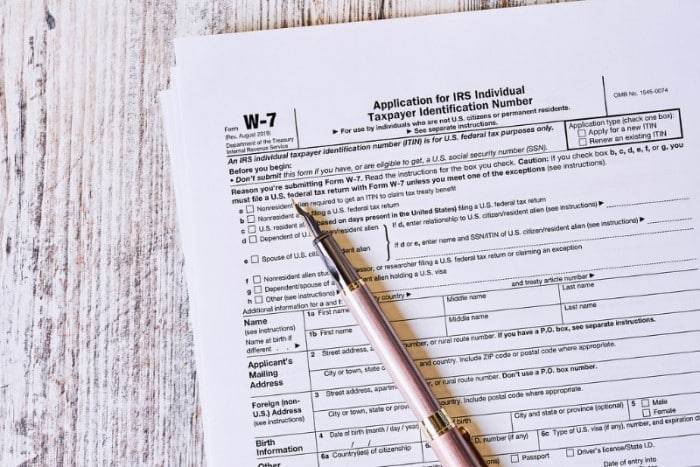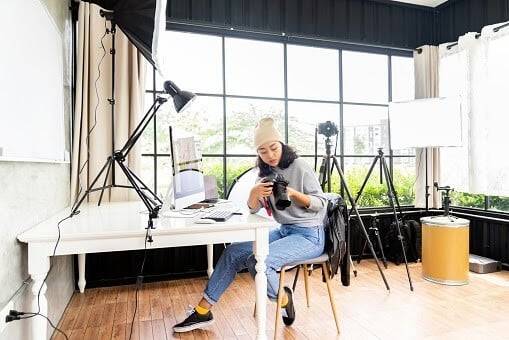
Freelance photography is often a lucrative deal for photographers with portfolios. But is your portfolio good enough? Or do freelance photographers need a business license as well?
It’s highly unlikely that a client hires you to take their engagement pictures after reviewing your business license. However, as a freelance photographer, you should know how important the licensing regulations are.
Before starting a freelance photography business, one should know the prerequisites, including a business license.
Taking your initial steps, getting answers to these questions is a must:
We’ll answer these questions and many more in this guide, so keep reading.
Getting a license should be on your priority list while making a freelance photography business plan. But for that, you need to know the type of businesses you can register as.
Your business type determines the income tax return you must file and your legal liabilities. Therefore, make this decision wisely, as it will have long-term implications for your business.

Here are some things to keep in mind when choosing your business type:
After considering all these factors, you can choose the kind of business you register to be.
Photography is one of those jobs where you work alone. Although some photographers end up having their full-fledged teams, freelancers often have to start independently.
So, a sole proprietorship is the right business type for you since it’s ideal for individuals who want full control over what they do.
As an LLC, you will have a hybrid business type that combines a corporation’s legal liability and a partnership’s flexibility of individual decision-making. As per the law, you and your business are not the same entity, unlike sole proprietorship.

Instead, your business and you will be considered different entities in an LLC. Therefore, if you’re in debt, creditors cannot take your assets as per the law.
You will share your business’s ownership with another person in a partnership. It’s almost like a sole proprietorship, where the law considers you and your business the same entities.
All partners in a business must legally agree on decision-making, splitting profits, and resolving disputes in the company. As a freelance photographer, if you wish to form a partnership, ensure you’re doing it with someone ready to stay for a long time.
A corporation is the highest business type on the hierarchy, considered a separate entity from the business owner. A corporation can enter contractors and be used by someone.
Think of it as an advanced form of an LLC since you get more tax advantages.
S corporations are most common and have the following features:

Consider the structure and scope of your photography business before registering as a company. If you’re working alone, opt for sole proprietorship, which is best for individuals.
On the other hand, if you’re partnering with a friend, such as an editor or videographer, form a partnership. Meanwhile, small photography teams can set up an LLC to get more tax benefits.
Similarly, if you’re a whole photography agency with multiple employees, you can opt for an LLC. It’s rare for photographers to form corporations, but you can head this way if you have a widespread photography network spread across different cities.
The short answer is Yes.
Your license is not merely a piece of paper but also sets the basis for taxing you. More importantly, some cities and states actually require you to have a license if you want to shoot in certain locations or specific types of events.
So, if you’re wondering if I need a business license for freelance photography, you should start with your application process today. Here are some common reasons photographers need to have licenses:
Despite all this, if you still want to be certain if your state or city requires you to have a license or not, you just need to make two calls. First, call your state licensing board, and second, call the local city hall. They’ll resolve any confusion you have.

We’ve already established the answer to the question, do freelance photographers need a business license? But what else do you need as a freelance photographer?
When learning how to be a freelance photographer, most people overlook the importance of knowing legal regulations and only stick to professional certifications. However, it’s imperative to know which documents you need to keep your business up and running without a hurdle.
No matter which jurisdiction you live in other than Oregon and Montana, you need to pay sales taxes. While you may think of photography as a service, the law sees digital files and printed photographs as physical deliverables.
Therefore, you have to pay sales tax. Most states need you to have a sales tax license or certificate. You can simply search for the application process for your state and fill the form in a few minutes.
Before you do that, call your local authorities and inquire whether you need to pay sales tax on your business or not. The tax laws change often, so it’s important to keep up.
Although it’s not a permit, you need liability insurance if you cover events. It will allow you to shoot at different venues with peace of mind.
For instance, if you lose your gear, insurance will cover it. Similarly, your insurance plan will also cover you if there’s an injury or material damage on the location.
Although you can work as a freelance photographer without a license, it’s neither safe nor advised. The chances of being sued as a photographer are quite low, but you never know when you may be having a bit of bad luck.
Therefore, it’s vital to have a business license. If you want to be fully sure, call the local authorities or check their website to learn about the licensing requirements for freelancers in your state or city.
Normally, getting a license as a small business costs anything from $50 to $400, so it’s not a huge upfront cost. Moreover, you may have to pay $25 to $30 for processing.
A common question asked by newbies is, do freelance photographers pay taxes? Yes, they do. The freelance photographer tax write-offs differ, depending on the kind of business they have registered as. If you need help filing your taxes, here are a few websites and software to use:
Liberty Tax is an online tax filing service that you can use to file your taxes accurately and easily without worry. With over 12,000 tax professionals all over the country, the company’s award-winning help is always there.
Taxact is a tax-filing company that has filed more than 80 million returns since 2000. Along with their paid packages, they also have a free plan for simple filers. Their Self-Employed plan, at $94.95, is perfect for freelance photographers.
HR Block helps you do tax prep without a hassle from your computer or smartphone. You can meet your tax professional through video, phone, chat, or in an office and let them take over the rest.
The service’s plans start from $64.
Free Tax USA is an all-in-one tax-filing service that can be used for paying federal taxes or stimulus payments. Although the service has free software, some plans are paid.
Tax Slayer claims to be the easiest way to pay your annual taxes. Along with their free plan, the company also has a Classic Plan at $24.95 that freelance photographers will find useful.
Intuit is a multi-purpose platform that also has a tax-filing system that maximizes returns. Moreover, the tool has Quickbooks for all your accounting needs and Mint, which keeps track of your budget and spending.

If you’ve ever wondered, do freelance photographers need a business license, now you know the answer. So, it’s time to apply for the license.
The license application process for your brand will depend on the state or city you live in. Here are the steps to follow when you are applying for a business license:
As a small business, you can check the Small Business Administration’s website to learn about the licensing requirements in your state. Or, you can check with the local authorities.
Do note that you’ll need a license for the city you primarily operate in. But if you travel to other cities or states to cover events, you need to ask a legal professional about the implications.
When getting a license and registering your business, you also need to choose a unique name. Make sure you select something attractive and professional as it’s bound to make a good impression on clients.
Most freelance photographers name their businesses after themselves, such as Arthur Green Photography. It’s not advised to use specific words in your business name, such as wedding or food, as it will dissuade clients from hiring you for other services, such as fashion or portraits.
At this point, it also helps to create a website. If you don’t know how to do it yourself, you can hire someone from Fiverr to do it for a minimal cost.
Once you have selected your name, you need to determine the structure of your company. Do you want to operate as a sole proprietor or an LLC? Are you forming a partnership with someone?
Here are a few things to consider when choosing a business structure:
Finally, before applying, getting insurance for your business is also helpful. According to the Small Business Association, here are some types to consider:
Finally, fill in all the details your state requires and submit your form. You’re good to go!
All in all, do freelance photographers need a business license? Yes, they do. Once you step into the field, you must understand what being a freelance photographer means. You might be working on your own terms, but that does not exempt you from legal regulations and requirements.
Therefore, it’s imperative for you to apply for a license and get yourself insured, especially if you are planning on expanding your business nationwide.
Last updated: July 3, 2024